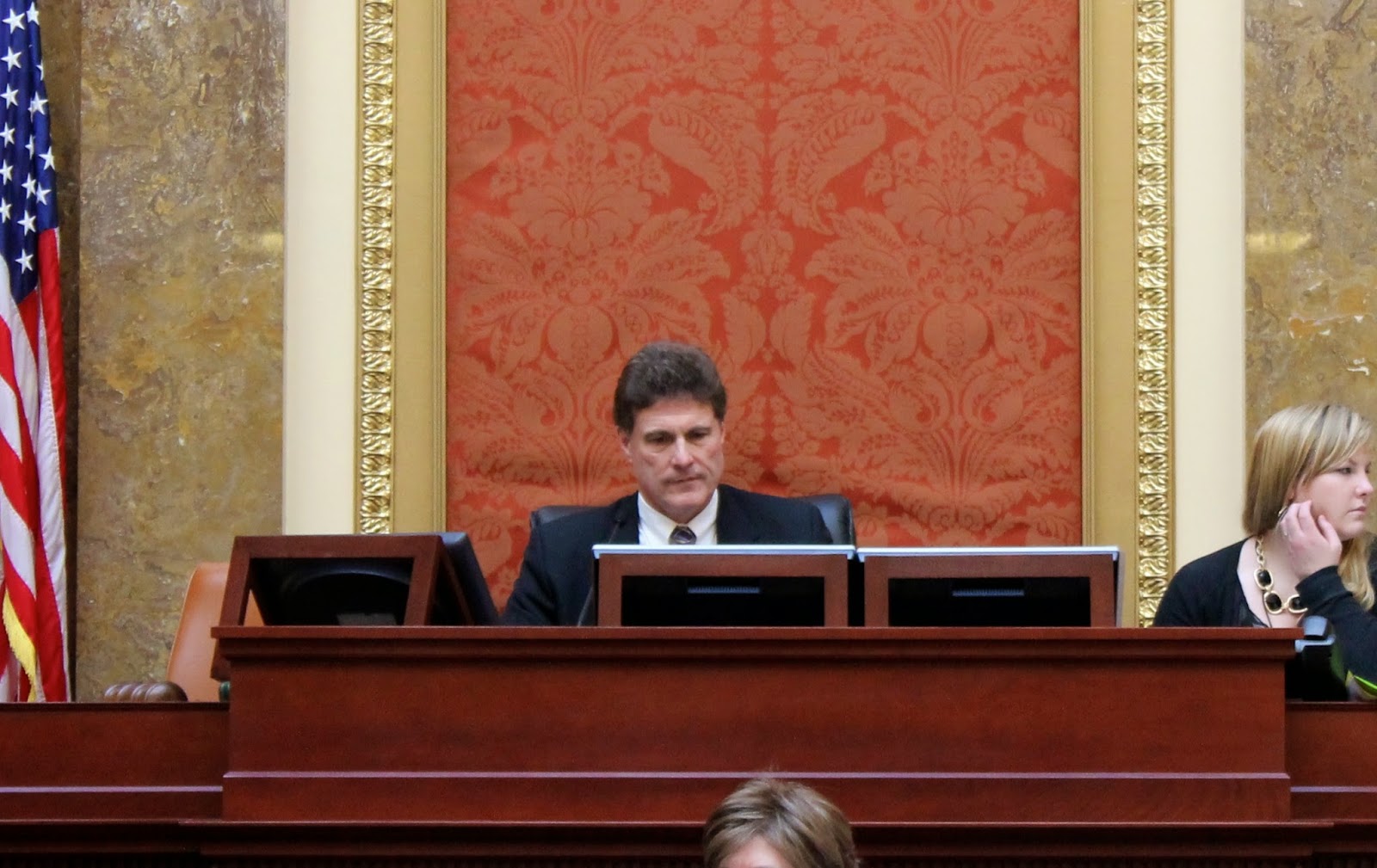This week at the Capitol we received the state’s latest revenue projections and are now working to finalize the state budget. We’ve already passed a base budget as a guide, but we now we can confidently appropriate new ongoing and one-time revenue. Overall, new estimates show that one-time revenue is up $11 million and ongoing revenue is up $47 million, with most of that increase in the education fund. In total, the state has $144 million in new one-time revenue and $253 million in ongoing revenue.
It’s important to recognize the difference between the two types of revenue. We can expect the source of ongoing revenue to remain about the same year to year, but one-time revenue can only be used once. Except in cases of emergency, the state of Utah does its best to avoid paying for ongoing costs with one-time revenue.
Utah continues to be well positioned for what lies ahead. Our consumer confidence levels are well above national averages, and our unemployment rate, at 4.1 percent, is well below the national average.
Every year, legislators are tasked with balancing the budget. This means making hard choices when it comes to what the state should and should not fund. This session the House has made funding public education, air quality initiatives, and providing for Utah’s most needy top priority. It’s in imperative that our school children are given innovative ways to learn, that Utahans can feel safe about the air they breathe, and that those that need help, are given help.
As always, I look forward to hearing from you regarding your concerns and expectations.
| Representative Dunnigan and Representative Dee discussing a bill. |
HOUSE PASSED LEGISLATION
HB 74– Energy Efficient Vehicle Tax Credit (Rep Snow)
This bill modifies the amount of tax credit that may be claimed for the purchase of certain energy efficient vehicles; and makes technical and conforming changes.
HB 31– Pollution Control Amendments (Rep Wilcox)
This bill repeals provisions related to pollution control. It enacts the Pollution Control chapters, including; defining terms; sales and tax exemptions; claiming refund of sales and use taxes paid; certification process for purposes of sales and use tax exemptions; revocation of certification and rulemaking authority by the Air Quality Board of Water Quality Board.
HB 127 – Consumer Lending Amendments (Rep Dunnigan)
This bill provides a way for consumers to get out of the cycle of debt by giving them 60 days interest free to pay off a payday loan that has been in place for 10 weeks.
H.B. 217 – Service Animals (Rep Wilcox)
This bill allows service animals to be adopted when they retire.
The bill allows a voter to request the voter’s voter registration record be classified as a private record.
HB 341– Federal Land Acquisitions Amendments (Rep Noel)
This bill amends provisions relating to the legislative’s approval of conveyances of school trust lands.
HB 336 S1– Substitute Court System Task Force (Rep Jeremy Peterson)
This bill creates the court system Task Force. It requires that the Task Force provide the Judiciary Interim Committee with a report of the task force’s recommendations by November 30, 2015.
SB125– Retired Volunteer Health Care Practitioner Amendment (Sen Henderson)
This bill amends the eligibility requirements for an individual to apply for a retired volunteer health care practitioner license.
SB132– Humans Service Amendments (Sen Harper)
This bill provides that the district court may appoint an office attorney guardian ad litem when the district court determines that no private attorney guardians ad litem are reasonably available. Any savings shall be applied to the office to reduce caseloads and improve practice in Juvenile court and to recruit and train attorneys for the private attorney guardian ad litem program.
SB 103 S1 – Local Control of Classroom Time Requirements (Sen. Osmond)
This bill allows a local school board or charter school governing board to reduce the number of instructional hours or days within the school term for certain purposes.
SB 130 – Trust Deed Foreclosure Amendments (Sen. Harper)
This bill amends the requirements related to trust deed foreclosures, including communications with a default trustor.
SB 138 – Controlled Substances Act Amendments (Sen. Vickers)
This bill provides that more than one controlled substance may be included in a prescription.
SB 155 – Apportionment of Income Amendments (Sen. Bramble)
This bill amends a definition related to the apportionment of income for purposes of corporate franchise and income taxes
SB 168 – Charity Care Amendments (Sen Christensen)
This bill requires a written waiver from a patient; and provides immunity from liability to a health care provider who volunteers services at a federally qualified health center or an Indian health clinic.
.jpg) |
| Representative Dunnigan on the Dais running the House floor as Speaker Pro Tem. |
